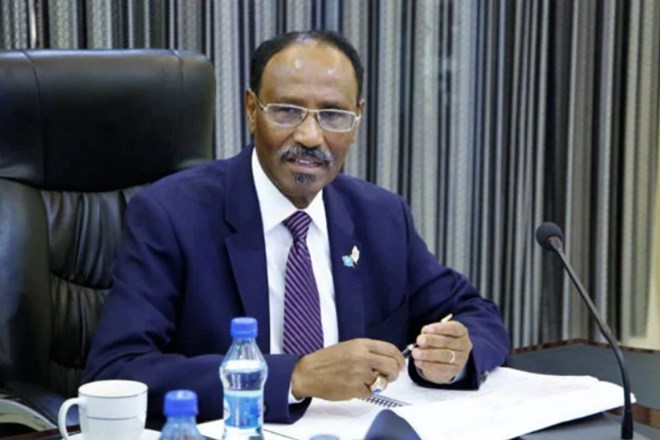
Monday May 4, 2020

Finance Minister Abdirahman Duale Beileh spoke to writer Aggrey Mutambo on Somalia’s debt relief, security and Covid-19.
..............................
How has Covid-19 affected the economy in Somalia?
The global lockdown and unemployment crisis created by Covid-19 has affected diaspora employment and, hence, their contribution. Remittances play a key role in the Somali economy and they are the largest proportion of support to individuals and families.
Transferring money from overseas is further complicated in Somalia by the lack of corresponding banking relations. At this time when flights are restricted and movement is limited, it is becoming extremely difficult for the Somali remittance companies and businesses to move their funds to finance their vital operations internationally. This is hurting the Somali economy.
The pandemic adds to your problems. What is Somalia's contingency plan?
We will prioritise the health of the people. Our plan includes providing public information on how to keep safe, continuing with social distancing measures and providing tax relief on essential staple food to offset the cost of the basic foods rising at this vulnerable time.
We are also working on costing the economic impact of the pandemic and preparing the ground for a support programme to cover some of the budget deficit this year.
Are you still on course with the stabilisation plan?
Somalia’s recovery plan is multifaceted and is included in our 9th National Development Plan. Key among its priorities are investment in public services, security and good governance. The plan was endorsed by the Somali Cabinet and is being prepared for implementation.
How will Somalia reach total debt relief in three years as projected?
We have achieved immediate debt relief of $2.2 billion from our bilateral and institutional creditors as a result of completing a rigorous but useful reform programme supervised by the IMF.
Reaching Completion Point will require further reforms that will build on those achieved over the past three years. These reforms will require the further strengthening of public financial management, increase and diversify domestic revenue and improving good governance.
Reaching ultimate debt cancellation point will also need the continuation of the partnership with our international bilateral and multilateral partners, creditors and the private sector who have supported the reforms process.
How will Somalia avoid the curse of the general debt problem in Africa?
In the immediate to medium term, Somalia will have no appetite for borrowing. The terms of the current debt relief under the Highly Indebted Poor Countries Initiative also do not allow Somalia to borrow until the Completion Point.
In the future, borrowing may be needed but will be done in line with the stringent Public Financial Management Laws of Somalia and where a viable economic return and capacity of these loans to repay themselves.
Somalia’s experience with debt has taught us much and so, we will focus on domestic resource mobilisation, regional trade and economic co-operation and exports of our competitively produced goods and services to be financially sustainable.
What is the plan for self-sufficiency as donor funds dry up?
The long-term focus is on self-sufficiency through domestic resource mobilisation and investing in our key industries to create employment and regional and international trade opportunities. We cannot continue depending on donors forever.
On security, critics claim al-Shabaab operates a parallel taxation system, how do you plan to lock them out?
This is likely true. However, this is not tax, but criminal extortion. Taxes are paid to a legitimate government that invest public finances into improving public life, creating opportunities and a better society; not to terrorists who murder the innocent.
We maintain that paying al-Shabaab is a crime and under our laws it is supporting the financing of terrorism.